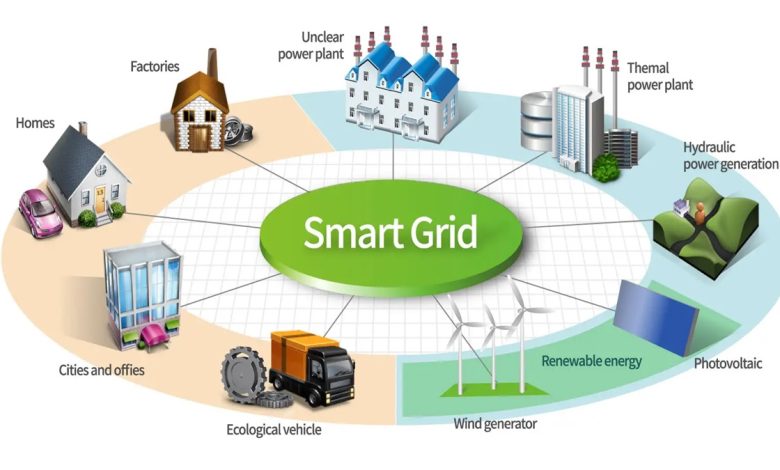From Grid Modernization to Smart Infrastructure: The Role of Legal Frameworks in Shaping the Future of Utilities

The modernization of utility grids and the transition to smart infrastructure represent critical components in the global push towards sustainable and efficient energy systems. However, the success of these technological advancements doesn’t solely rely on engineering and technology. Legal frameworks play a pivotal role in shaping how these technologies are implemented and governed. This article explores the intersection of law and utility innovation, detailing the role legal frameworks play in facilitating or hindering the modernization of utility grids.
Understanding the Need for Grid Modernization
The aging infrastructure of many utility grids worldwide is increasingly unable to meet the demands of the modern consumer and the technological capabilities of the 21st century. Issues such as energy inefficiency, frequent power outages, and limited integration of renewable energy sources highlight the need for modernization. Smart grids, which use digital technology to monitor and manage the transport of electricity from all generation sources to meet the varying electricity demands of end-users, offer a solution. However, deploying these technologies requires robust legal support to address various regulatory, privacy, and security concerns.
Key Legal Considerations in Grid Modernization
Several legal areas are critical when discussing grid modernization, digital technology and the implementation of smart infrastructure:
1. Regulatory Compliance
Utilities are among the most heavily regulated sectors, with laws that vary significantly across jurisdictions. Legal frameworks need to evolve to accommodate new technologies that enable smart grids, such as advanced metering infrastructure (AMI) and grid automation tools. This involves updating standards related to safety, reliability, and interoperability of systems while also considering how these technologies impact the grid’s stability and security.
2. Data Privacy and Security
Smart grids collect vast amounts of data to operate efficiently, raising significant privacy and cybersecurity concerns. Legal frameworks must ensure that this data is protected and that the privacy of consumers is not compromised. This includes creating laws that govern data collection, storage, usage, and sharing, as well as stringent measures against data breaches.
3. Integration of Renewable Energy
The legal frameworks governing the energy sector must facilitate the integration of renewable energy sources into the grid. This includes regulations around grid access, tariff structures, subsidies, and incentives for renewable energy providers. Ensuring that these legal provisions support the economic viability of renewable energy is crucial for the transition to a greener grid.
4. Utility Business Models and Market Structures
As Technology evolves, so too must the business models of utility companies. Legal frameworks need to adapt to allow for new business models that can accommodate distributed energy resources (DERs), demand response technologies, and energy storage solutions. These adaptations could include modifications to rate structures, utility regulations, and market rules to ensure that utility companies can sustainably manage these new technologies.
The Impact of Legal Frameworks on Innovation
The role of legal frameworks extends beyond regulation and into the facilitation of innovation. Clear and supportive legal structures can significantly accelerate the adoption of smart grid technologies by providing a stable environment for investment. Conversely, ambiguous or restrictive legal frameworks can hinder technological adoption, stifle innovation, and delay the benefits that these technologies bring.
Facilitating Public and Private Investment
For grid modernization projects, both public and private investments are crucial. Legal frameworks that offer incentives, subsidies, or other financial benefits can attract investment into smart grid technologies. These legal assurances are essential for investors who need certainty about the regulatory environment before committing substantial capital to infrastructure projects.
Encouraging Pilot Projects and Innovation
Legal provisions that allow for pilot projects and experimental technologies can lead to breakthroughs in smart grid development. These frameworks can enable utilities and tech companies to test and refine innovative solutions in a real-world environment without the full regulatory burden typically associated with utility operations.
Challenges in Reforming Legal Frameworks
Reforming legal frameworks to support smart infrastructure is not without challenges:
Balancing Stakeholder Interests
Creating or adjusting legal frameworks involves balancing the interests of a wide range of stakeholders, including utility companies, consumers, technology providers, and governmental bodies. Each group has its own priorities and concerns, making consensus difficult.
Keeping Pace with Technological Advances
Technology evolves rapidly, often outpacing the slower legislative processes. Legal frameworks must be flexible and adaptive to keep up with technological advancements without compromising the regulatory oversight necessary for system stability and public safety.
Conclusion
As we continue to advance towards smarter utility infrastructures, the importance of robust and adaptive legal frameworks cannot be overstated. These frameworks play a crucial role in shaping the environment within which these technologies operate, influencing everything from consumer protection to the economic viability of renewable energy. By supporting innovation through law, we can ensure that grid modernization not only leads to more efficient and sustainable energy systems but does so in a way that benefits all stakeholders involved. Thus, the future of utilities will depend as much on legal expertise and legislative action as on technological innovation.





